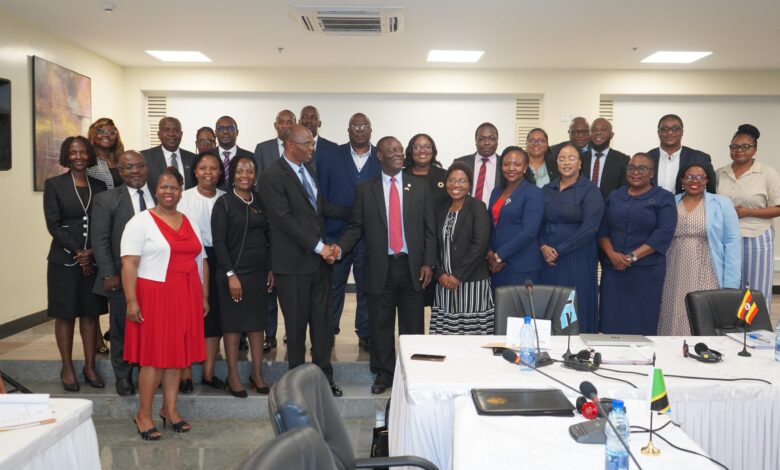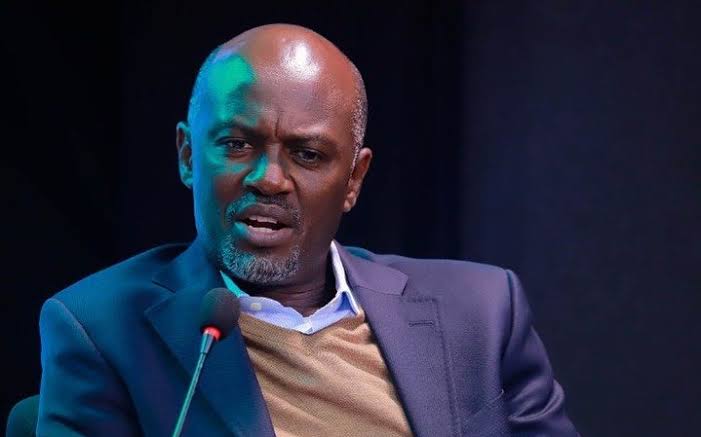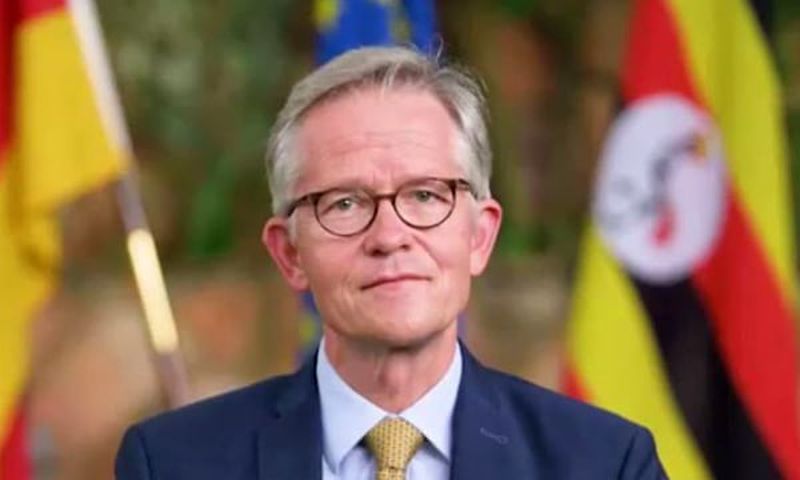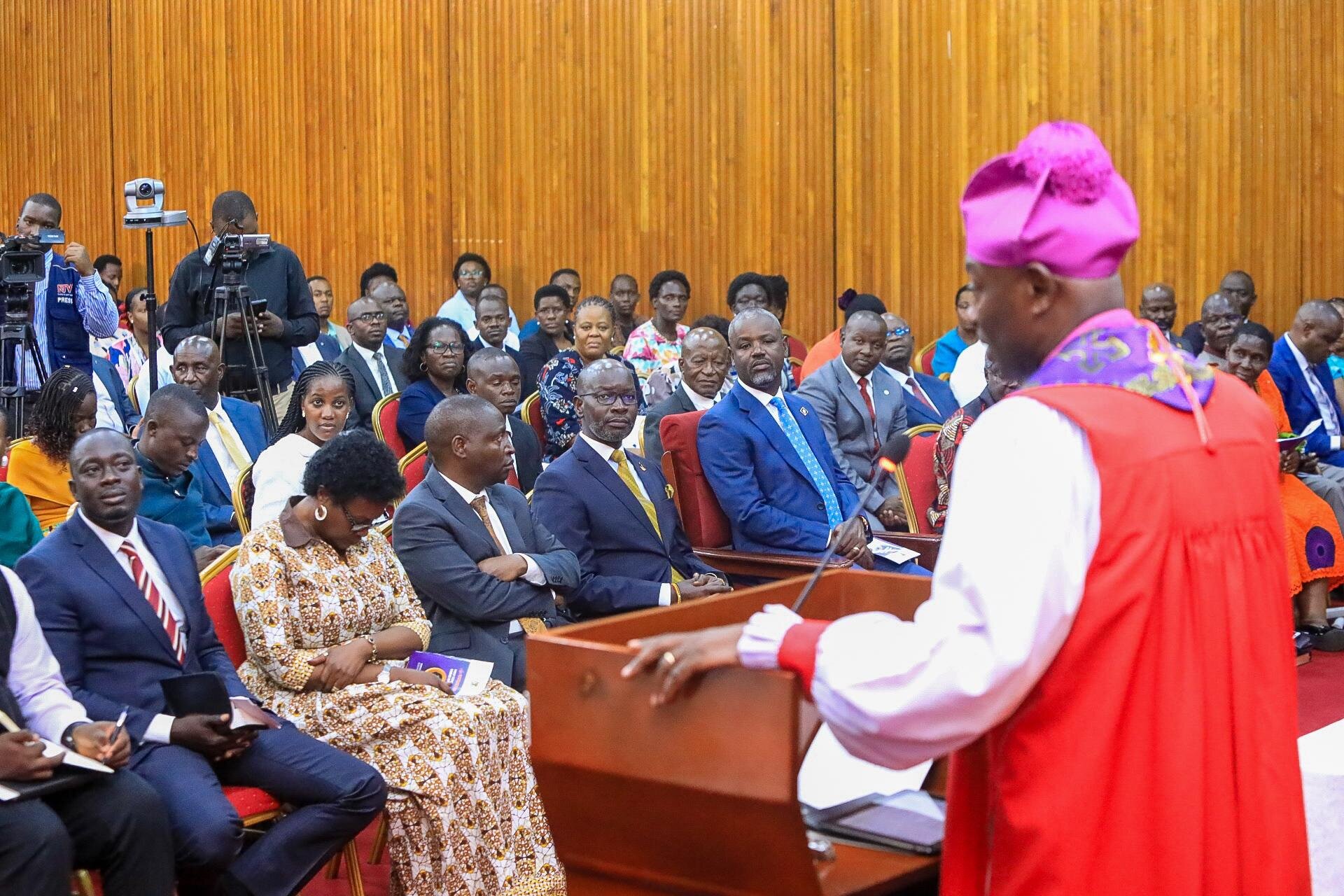Regional Judiciary leaders push for unity to improve justice delivery
While the primary focus is on enhancing justice, Professor Elisante highlighted Kenya's recent entry into the association as a "milestone" that signifies the expansion of the regional judicial network. "It's like welcoming a newborn into the family," he quipped, likening Kenya's inclusion to the birth of fresh potential for deeper collaboration.

In a world where competition often dominates sectors, the top judicial administrators of Southern and Eastern African countries are choosing a different path—one built on collaboration and unity.
At the heart of their discussions is a common goal: improving justice delivery across borders through shared expertise and resources.
During a media briefing at Uganda’s Judiciary Headquarters in Kampala, Professor Elisante Gabriel Ole, Chairperson of the Southern and Eastern Africa Judicial Administrators Association (SEAJAA), spoke about the urgent need for cooperation among member states rather than rivalry.
“Our focus is on justice for our people. The only way we can ensure this is by working together, learning from each other, and strengthening our judicial systems collectively,” Professor Elisante remarked.
The timing of his statements is significant, as SEAJAA prepares to host its week-long Chief Justices Forum of Southern and Eastern Africa, with Uganda’s President Yoweri Kaguta Museveni expected to officially open the event. The forum presents a unique opportunity for judicial leaders from across the region to engage in high-level dialogue about the future of justice delivery.
While the primary focus is on enhancing justice, Professor Elisante highlighted Kenya’s recent entry into the association as a “milestone” that signifies the expansion of the regional judicial network. “It’s like welcoming a newborn into the family,” he quipped, likening Kenya’s inclusion to the birth of fresh potential for deeper collaboration.
As the association grows, so do its responsibilities. Over the course of the conference, SEAJAA will elect new office bearers and review its financial status, determining how resources can be better pooled for the benefit of all member states.
With 14 countries, including Uganda, Eswatini, Tanzania, Zambia, Seychelles, and more, SEAJAA’s mission is clear: to bring together top judicial administrators such as Permanent Secretaries, Accounting Officers, and Chief Registrars in the pursuit of stronger, more efficient judicial systems.
Uganda’s Judiciary Permanent Secretary, Dr. Pius Bigirimana, and Chief Registrar, Sarah Langa Siu, are attending the meeting, eager to contribute and learn from the experiences of their regional counterparts.
Dr. Bigirimana believes that the collaboration fostered through SEAJAA will have tangible effects on justice in Uganda. “We all face similar challenges, and by working together, we can find solutions that benefit everyone,” he noted.
Some of the key issues on the agenda include addressing backlogs in courts, improving access to justice for marginalized communities, and adopting modern technologies to streamline judicial processes. For Sarah Langa Siu, Uganda’s Chief Registrar, the forum presents an opportunity to exchange innovative ideas.
“We are always looking for ways to make our judiciary more accessible and efficient. This is a space where we can share what’s working in our own systems and learn from others,” she shared.
Kenya’s entry into SEAJAA has been met with excitement, not only by the association’s leadership but also by judicial officials across the region. Justice Mwangi, a senior legal officer from Nairobi, expressed hope that Kenya’s inclusion will open up new avenues for cooperation.
“We have a lot to contribute and even more to learn. By being part of SEAJAA, we are putting ourselves in a position to elevate our judiciary to new heights,” he said.
For many, SEAJAA’s ethos of collaboration represents a shift in mindset. In a world where competition often leads to isolation, SEAJAA members are opting to pool their resources and share their expertise, understanding that by lifting each other up, they can all win.
As the association’s outgoing chairperson, Professor Elisante, stated, “The future of justice delivery in our region depends on unity. When we work together, we succeed together.”
As SEAJAA looks toward electing new leadership and expanding its membership, the sense of optimism is palpable. “The strength of our association lies in its diversity and its shared commitment to justice. We may have different legal systems, but our goals are the same: justice, fairness, and equality for all,” said Professor Elisante, summing up the spirit of the conference.
For judicial administrators in Southern and Eastern Africa, the road ahead may be challenging, but with collaboration at the forefront, they are confident that they are on the right path to achieving lasting change in the region’s justice systems.







